2017 Back-to-School Reading List
Whether you’re heading back to campus, back to the office or just looking to get back into a routine this fall, the third annual Goldman Sachs Back-to-School Reading List features a collection of books you won’t want to put down. Check back daily over the next few weeks to see what Goldman Sachs executives across the firm and across the globe recommend reading.
Kathy Matsui – Global Investment Research, Tokyo
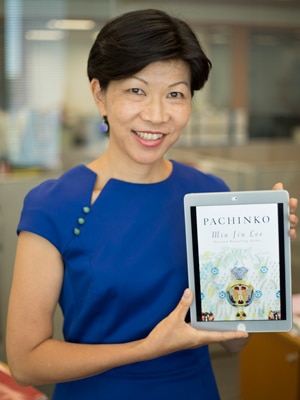
Pachinko, by Min Jin Lee
Too little has been written about the history of Korean immigrants in Japan, but Pachinko is a page-turning saga about four generations of a Korean family trying to assimilate in 20th century Japan. I got to know Min Jin when she was conducting her research in Tokyo, and this novel delves into the complex, and often misunderstood, history between Korea and Japan. At the same time, it’s a dramatic and poignant tale of an immigrant family’s multi-generational struggles with their identity—something I can relate to—which also has significant relevance in today’s political context.
Half the Sky: Turning Oppression into Opportunity for Women Worldwide, by Nicholas Kristof and Sheryl Wudunn
While we’ve seen progress in narrowing the gender gap in developed nations, this book is a sobering reminder that there are still many parts of the developing world where oppression and violence against women and girls persists and is sadly ignored. As the mother of a daughter, the individual stories are somewhat difficult to read, but by proposing concrete solutions, Nick and Sheryl challenge each of us to wake up and take action. This book helped inspire me to support women’s education through the Asian University for Women (www.asian-university.org).
Heath Terry – Global Investment Research, New York
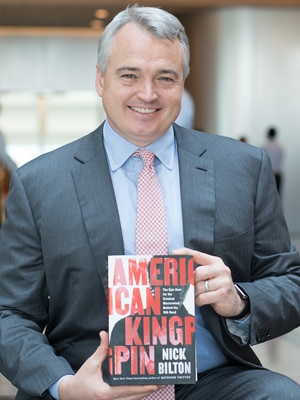
American Kingpin: The Epic Hunt for the Criminal Mastermind Behind the Silk Road, by Nick Bilton
This is the story of the founding of a different kind of start-up, The Silk Road. Bilton’s narrative of Ross Ulbricht’s creation of the Dark Net marketplace for illegal drugs and guns has real parallels to other internet start-ups, before becoming the story of the many different US government agencies that had to come together to uncover and convict Ulbricht and his collaborators. “Kingpin” is a really engaging true crime story that reads like a Hollywood screenplay.
The Upstarts: How Uber, Airbnb, and the Killer Companies of the New Silicon Valley are Changing the World, by Brad Stone
Brad Stone wrote the definitive book on Amazon, “The Everything Store,” so I’m biased toward reading his work. His new book, “The Upstarts,” covers the founding of Uber and Airbnb. While a lot has already changed since the book published in January, it’s a great account of the work that founders and the teams around them put in. It’s also a story of the circumstances, and the luck, necessary to create companies like these.
Celine Mechain – Investment Banking Division, Paris
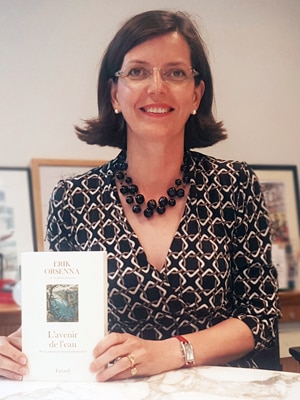
L’Avenir de l’eau (The Future of Water), by Erik Orsenna
Erik Orsenna is a member of the French Academy and a philosopher. He is particularly focused on the impact of globalization on the planet’s resources. In this book, he wrote about the issue of the increased scarcity of water on the planet. The academician explores during his multiple travels what the future holds, what is to be done and what can be done. From South America to Oceania, via Asia, he tells us about his meetings, his discoveries concerning one of the greatest challenges of our time as well as the strategy adopted by cities like Singapore to preserve this scare and essential resource.
Sapiens: A Brief History of Humankind, by Yuval Noah Harari
This book which became an international bestseller explores how human history got shaped through three major revolutions: the cognitive revolution (70,000 years ago), the agricultural revolution (10,000 years ago) and the scientific revolution (500 years ago). It is a great travel with “Sapiens” through time and science and a way to reflect on where we are coming from and how we developed an ability to design not only the world around us but also ourselves.
Noah Poponak – Global Investment Research Division, New York
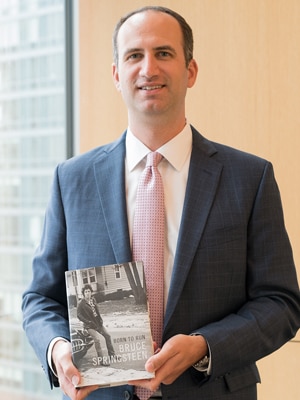
Born to Run, by Bruce Springsteen
As a southern Jersey Shore native and northern Jersey Shore resident, I love all things New Jersey. So naturally, that makes me a big fan of the Boss. His autobiography is fun in its recount of his discography, how his music career advanced over time, and the nostalgic descriptions of the Jersey Shore. It also makes clear the painstaking level of time, thought and energy Bruce put into his music. But the book also offers a candid look at his experience through the full range of life’s emotions, from the joys of his successes to many of life’s challenges he had to face and overcome, that we would otherwise not know about. This read makes the music that much better.
Perfect Health: The Complete Mind/Body Guide, by Deepak Chopra
Working at Goldman Sachs is intellectually stimulating and challenging, which is a huge part of what makes it fun. But I think any fast paced work environment, needs to be met with balance – work, life, family, fun, etc. – to achieve long term sustainable success. I first saw Deepak Chopra at the awesome speaker series Goldman Sachs has called Talks at GS, which brings in outside speakers on a variety of topics. If you are an employee reading this and are not taking advantage, do so immediately; I’ve seen countless amazing speakers through it. When I saw Deepak Chopra speak, his commentary really resonated with me. I couldn’t write it all down fast enough. And his books, including this one, are the same. “Perfect Health” makes a lot of observations that are so spot on you think he knows you, and offers a lot of practical advice for how to achieve balance and health in life.
David Lang – Finance Division, Salt Lake City
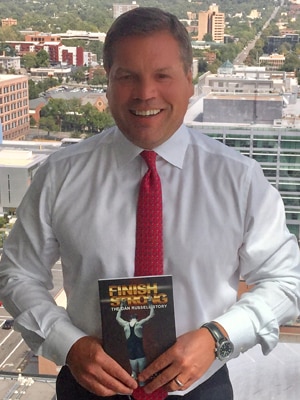
Finish Strong: The Dan Russell Story, by Dan Russell
I chose this book because of my interest in the sport of wrestling and the values it teaches. It’s a great read that reminds us that resilience and passion are powerful factors in achieving one’s goals.
Sean Fan – Merchant Banking Division, Beijing
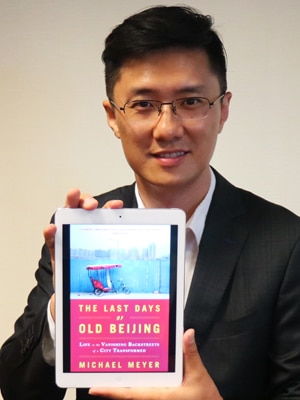
The Last Days of Old Beijing: Life in the Vanishing Backstreets of a City Transformed, by Michael Meyer
As China is rushing to become a powerful modern economy, a great deal of traditions and values are compromised. It is fortunate to have an evocative author recording the old way we lived, before it fades away from us.
A Brief History of Time, by Stephen Hawking
Imagine attending a lecture taught by one of the world's greatest minds in an easy, story-telling way. In the history of science, the few who dare to challenge the authority and to see the world from a completely different angle make great strides for mankind.
Mike Brandmeyer – Investment Management Division, New York
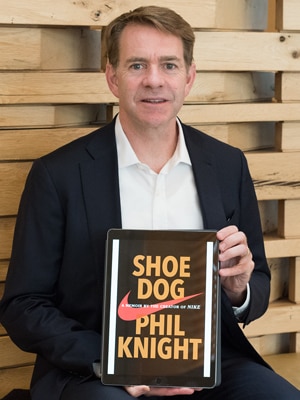
Shoe Dog: A Memoire by the Creator of Nike, by Phil Knight
“Shoe Dog” is the amazing story of how Phil Knight went from selling shoes out of the trunk of his car to creating a global athletic shoe and apparel juggernaut. Through a highly entertaining narrative the book demonstrates how Knight’s passion for an idea and a mission to create the highest quality products lead to building a great company, not the pursuit of financial goals. Running was a backwater, unpopular, non-mainstream activity when he set out to create what has become one of the iconic brands of our time.
Red Notice: A True Story of High Finance, Murder, and One Man’s Fight for Justice, by Bill Browder
Bill Browder's personal story of being one of the earliest and the largest foreign investor in Russia after the fall of communism in the 1990s reads like a spy thriller. “Red Notice” is one part stock picker's tale, one part international spy thriller. The book particularly resonates in today’s world where events in Russia continue to be a part of our daily headlines.
Kyung-Ah Park – Executive Office Division, New York
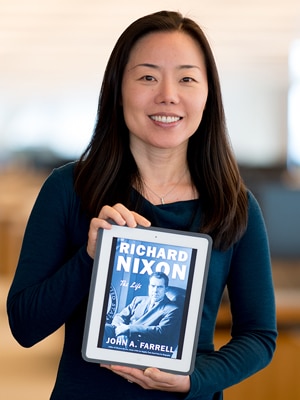
Richard Nixon: The Life, by John A. Farrell
Brilliantly written with new revelations, Farrell provides a humanizing depiction of the life of a president who came to the pinnacle of power from nothing through sheer will and hard work, yet alone and deeply insecure. A nuanced portrait of a president who had many triumphs (diffusing the Cold War, creating the EPA, furthering civil rights and desegregating schools) that are overshadowed by his desire to win at all costs that made him unscrupulous throughout his political career and ultimately culminated with his Watergate downfall. Many lessons that are poignant as ever.
Harit Talwar – Digital Finance, New York
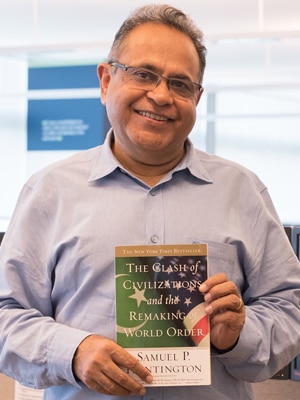
The Clash of Civilizations and the Remaking of World Order, by Samuel P. Huntington
A seminal – and not uncontroversial – study of political systems. Huntington’s book was originally published in 1996, but it remains timely today, even as modern connections – think social media – may help mitigate some of the tensions he describes in ways he could not have predicted at the time of writing. Reading his arguments can cause equal measures of despair and determination – despair at the enormity and complexity of the challenges that face the world, determination to ensure that its thesis not be prophecy. Many have written and argued for and against Huntington’s ideas; in a nutshell, he saw the post-Cold War era as one characterized by “cultural conflict.” Understanding that national allegiance is but one part of a person’s political identity is perhaps this book’s most profound contribution. I read it almost like a wakeup call.
The Presidents Club: Inside the World’s Most Exclusive Fraternity, by Nancy Gibbs and Michael Duffy
Fascinating book giving a behind the scenes look at how U.S. presidents since Hoover have helped their successors understand the office and the role and root for their success. No one understands the burden, challenges, and opportunities of the office until they actually occupy it. While they all have large egos and personalities, they are also drawn to the larger mission of the country and the office and put aside differences to help each other. Given that we at the firm operate like a partnership, it was very interesting to see the human relationships behind the institutional success. It is a reminder of the value of building relationships and not merely rely on processes and how cooperation can exist robustly with different views and opinions as long as there is a larger purpose. I found it inspiring both as a citizen of our country and an employee of a 147-year-old firm.
Shin Horie – Global Investment Research, Hong Kong
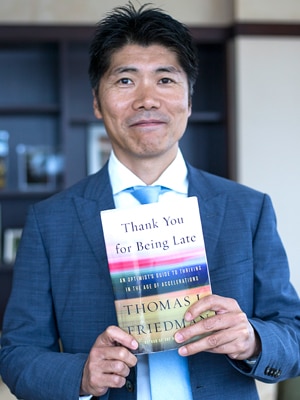
Thank You for Being Late: An Optimist’s Guide to Thriving in the Age of Accelerations, by Thomas L. Friedman
To me this book is a great “cheat sheet” to keep me updated on the latest important topics of the world. It covers a wide range of areas such as technology (which I have a lot of personal interest in), the financial market, and social, political, and geographical issues, and is full of interesting real world stories. Most importantly, it makes me feel optimistic about the future after finishing it.
Do You Still Think You’re Clever?: Even More Oxford and Cambridge Questions!, by John Farndon
This book has a list of questions asked at the admissions interviews of Oxford and Cambridge, and the author tries to provide his own answers. Questions like, “Why do human have two eyes?”, “what do you think of a teleportation machine?”, “should we open a Wal-Mart store in the middle of Oxford town?”, may have no right answer. Candidates need to digest the question, recall everything they have learned about the topic and frame the answer as creative as possible on the spot. It really tests the candidates’ depth, width and flexibility of thoughts. If I can generalize, this is a relatively weak area of local education systems in Asia. The encouraging thing is that we see a number of attempts emerging to overcome this issue.
Wolfgang Fink – Investment Banking Division, Frankfurt
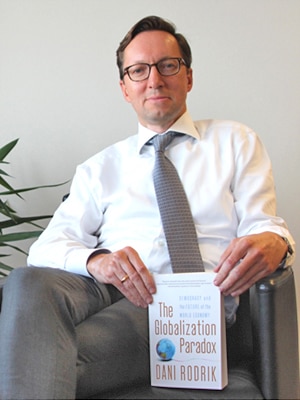
The Globalization Paradox: Democracy and the Future of the World Economy, by Dani Rodrik
An insightful treatment of globalization by Harvard Professor Dani Rodrik. Rodrik explains why economists have advocated for globalization in financial institutions, labour markets and trade for decades. He shows that a global economy and free trade are not necessarily beneficial to all. According to him, they may not even be compatible with our idea of democracy and nation states. Rodrik makes reasonable and realistic suggestions of how to improve global economic cooperation. He argues for smart globalization, not maximum globalization.
Network Thinking: Beyond Brockhaus Thinking, by Ulrich Weinberg
An unusual roadshow to the most innovative locations and people around the world. Where network thinking drives actions. The book leads behind the scenes of large corporations that are leaving the analog 20th century “Brockhaus Thinking” mode, but also to small companies that never practiced it. It shows how a network thinking approach can make corporates and individuals extremely successful.
Padideh Raphael – Securities Division, Hong Kong
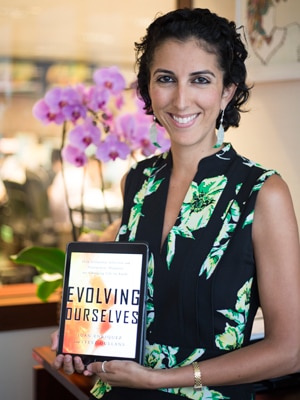
Evolving Ourselves: How Unnatural Selection and Nonrandom Mutation are Changing Life on Earth, by Juan Enriquez and Steve Gullans
This book paints a fascinating picture of what humanity could look like in the next 5-20 years, as the exponential pace of technological advancement now allows for controlled genetic design to supersede passive natural selection which has ruled human evolution on this planet for millions of years. As someone who studied Neuroscience in undergrad 20 years ago, I was blown away to learn that scientists are currently succeeding in transplanting full heads (on rats), which is amazing to think about given the task of re-fusing the nervous system to the body. With the concurrent strides in mapping of brain functionality, and ongoing push to find other habitable planets out in space (which the authors expect will be well within 5-10 years!), it takes only a little imagination to extrapolate how radically altered life can be like for future generations.
Matt Jahansouz – Human Capital Management Division, New York
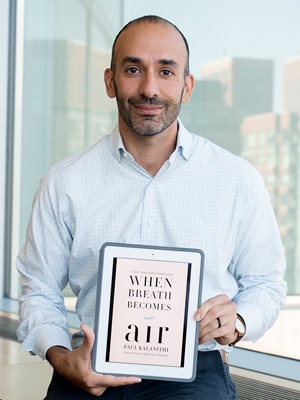
When Breath Becomes Air, by Paul Kalanithi
Extraordinary and emotional; so beautifully and thoughtfully written, many sentences will stop you right in your tracks and leave you thinking for days. Not the lightest of topics, this book explores how one young man, himself a neurosurgeon, manages the news and the process of being terminally ill. Written from the perspective of both doctor and patient and with the gift of understanding both science and literature, there are few reads like this one.
I Know This Much is True, by Wally Lamb
This is storytelling at its best. One of my favorites and a regular summer reread. You're taken into details that you never saw coming only to learn they're connected to everything you've already read. There are stories within stories and more heart and emotion packed into this book than most any other that I've picked up.
Gregg Lemkau – Investment Banking Division, New York
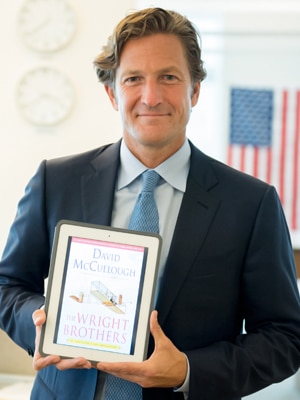
The Wright Brothers, by David McCullough
Fascinating recitation of the innovation and courage of the Wright brothers in their pursuit of flight. Incredible story of two underappreciated innovators whose unmatched curiosity and determination changed the course of history.
The Power Broker: Robert Moses and the Fall of New York, by Robert A. Caro
Story of Robert Moses and building New York City. Incredible story of the man behind the scenes who wielded outsized influence in the creation of 20th century NYC. Great lessons on true power and interesting context for today's discussion on infrastructure investment in America.
Dermot McDonogh – Finance Division, London
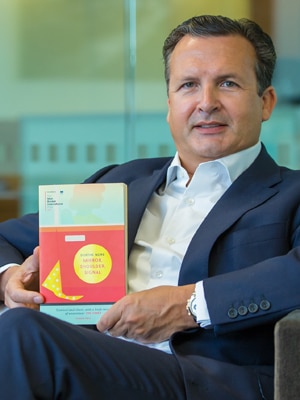
Mirror, Shoulder, Signal, by Dorthe Nors
A story of Sonja, a recently single mid-forty-something translator of Scandinavian noir, who escapes her rural upbringing in West Jutland to live in the hubbub of Copenhagen. The book delves into humorous situations including where the protagonist learns to drive with Jyette, an aggressive instructor, who won’t let her change gears, acting as a stark metaphor for her life. It also explores her on-going battle with vertigo and her complex relationship with her sister, Kate, who finds every opportunity to cut short conversations. "Mirror, Shoulder, Signal" is funny, insightful and incredibly smart.
Don’t Let’s Go to the Dogs Tonight: An African Childhood, by Alexandra Fuller
A very honest, raw memoir, where Fuller retells the story of growing up in a white tenant farming family pre and post-Independent Zimbabwe. The book explores stark themes of civil war, imperialism, racism, the loss of siblings and dealing with her mother’s failing mental health. Although a tragic, and often uncomfortable portrayal, of this time in social history there are moments of laughter and gentleness throughout. An educational, emotional and interesting read.
Elisha Wiesel – Engineering, New York
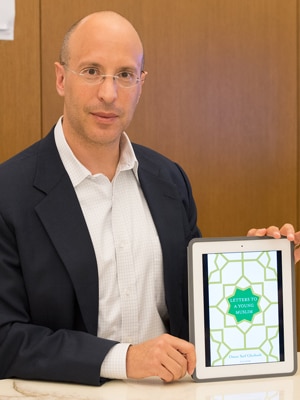
Letters to a Young Muslim, by Omar Saif Ghobash
So inspiring to read a voice of moderation from a background so different from mine. An urgent plea to the next generation to resist the lures of polarization and divisiveness that surrounds us everywhere.
The Three-Body Problem, by Liu Cixin
I’ve been a science fiction fan my entire life but had never read any Chinese works until this book. The plot is super-ambitious; since I don’t want to spoil anything I’ll just say it starts off with a wave of scientist suicides in the wake of experimental particle physics results that suggest science is broken.
Christina Minnis – Investment Banking Division, New York
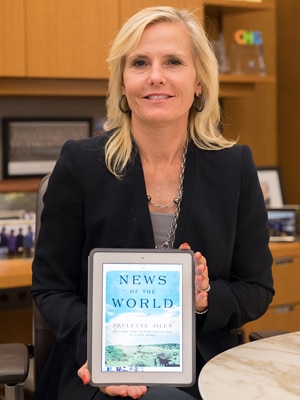
News of the World, by Paulette Jiles, is the story of an older widowed veteran of the Civil War and War of 1812 who takes responsibility for returning a 10-year-old girl of German descent from her Indian captors to her aunt and uncle. Her birth family was killed by her captors, and she initially fights to get back to "her family; the Indian family." The story details how the relationship between the orphaned girl and widower evolves on their trip through the lawless frontier of post-Civil War Kansas and Texas. This book reminded me of “True Grit,” and I loved the ferocious spirit of the little girl, Johanna, and how the old man makes protecting her his final mission. "News of the World" offers a great window into our country at a very rugged time which seems distant but was not all that long ago. As I finished the book, Hurricane Harvey was making landfall in Texas. Watching the incredible acts of bravery and grit that our friends and colleagues have exhibited over the last few days, their sheer determination to move forward and reclaim their lives again confirmed Texans continue to be a special breed of American.
Ken Hitchner – Executive Office, Hong Kong
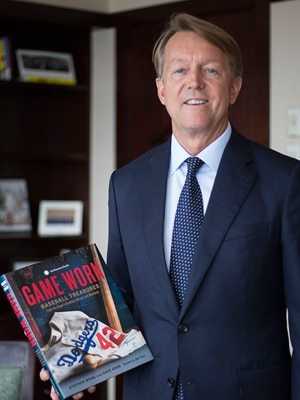
Game Worn: Baseball Treasures from the Game's Greatest Heroes and Moments, by Stephen Wong and Dave Grob
My colleague Stephen is a serious collector of baseball memorabilia. You don't have to be a baseball fan to appreciate the care and effort that went into his latest book, "Game Worn," with its beautiful photography and detailed storytelling about the game and its history. This book is a testament to years of research and a strong passion outside of work, demonstrating that a senior investment banker can make time for other pursuits beyond Wall Street.
Clif Marriott – Investment Banking Division, London
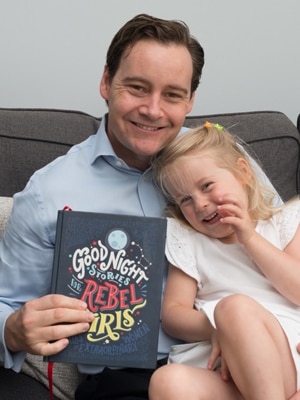
Good Night Stories for Rebel Girls, by Elena Favilli and Francesca Cavallo
With three children under four coupled with a career in investment banking, I find it challenging to find time for reading books. But, I also struggle to find good books to read to my children, especially books for my daughters that aren't about princesses and living happily ever after. I received "Good Night Stories for Rebel Girls" from a good friend who also has two daughters. Comprising a few hundred short stories depicting strong female leaders from recent history, the book provides great female role models for my daughters that aren’t princesses.
Edith Cooper – Human Capital Management, New York
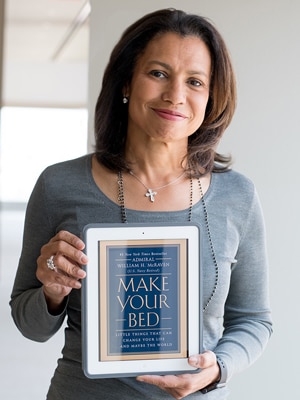
Make Your Bed: Little Things That Can Change Your Life…And Maybe the World, by Admiral William McRaven focuses on the small, but invaluable, actions we can take every day to make a positive impact in our lives and in the world more broadly. Admiral McRaven draws on his 37 years as a Navy SEAL to share ten lessons that apply to all of us - regardless of where we are in our life journey. The most important lesson I learned from Admiral McRaven relates to the power of one person to unite, inspire and give hope to those around him or her. When we find hope, even in the most difficult of times, we have the ability to drive change.
Allison Nathan – Global Investment Research Division, New York
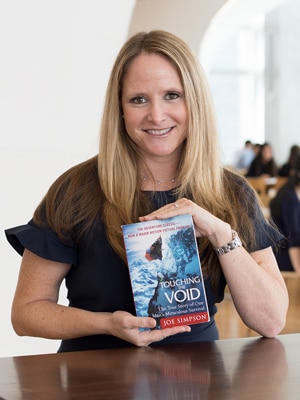
Touching the Void: The True Story of One Man’s Miraculous Survival, by Joe Simpson
I love stories about survival and perseverance against all odds. This is a true story of a mountain climber in the isolated peaks of Peru who breaks his leg, but manages to survive in the worst of conditions. It is an incredible and inspiring story of resilience that made a lasting impression (even though I don’t know the first thing about mountain climbing!).
White House Years (and Years of Upheaval), by Henry Kissinger
I first read these memoirs in college; they provide a captivating perspective on a pivotal period of shifting spheres of influence in the world and the United States’ place in it. No one can convey the complexities, subtleties and importance of diplomacy like Kissinger can—something that I find myself thinking about a lot lately given the seeming lack of appreciation for this today.
Marty Chavez – Finance Division, New York
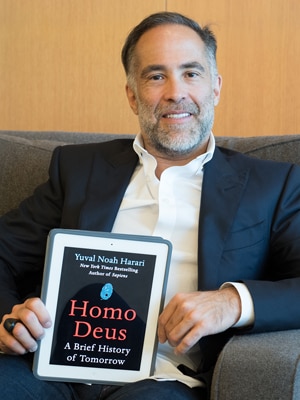
Homo Deus: A Brief History of Tomorrow, by Yuval Noah Harari
This is the sequel to “Sapiens: A Brief History of Humankind”, also a must-read. For anyone who thinks about the future of liberal democracy, humanism, machine learning, big data, genetic engineering, and human consciousness, here’s a provocative speculation on the future. I don’t share his dystopic vision, but his book makes for essential reading.
Strangers in Their Own Land: Anger and Mourning on the American Right, by Arlie Russell Hochschild
The author journeys from liberal Berkeley, California to the Louisiana bayou to paint a picture of life in red-state America. For anyone seeking to understand why people who might benefit from liberalism instead reject it, this book will give you information and a new perspective.

